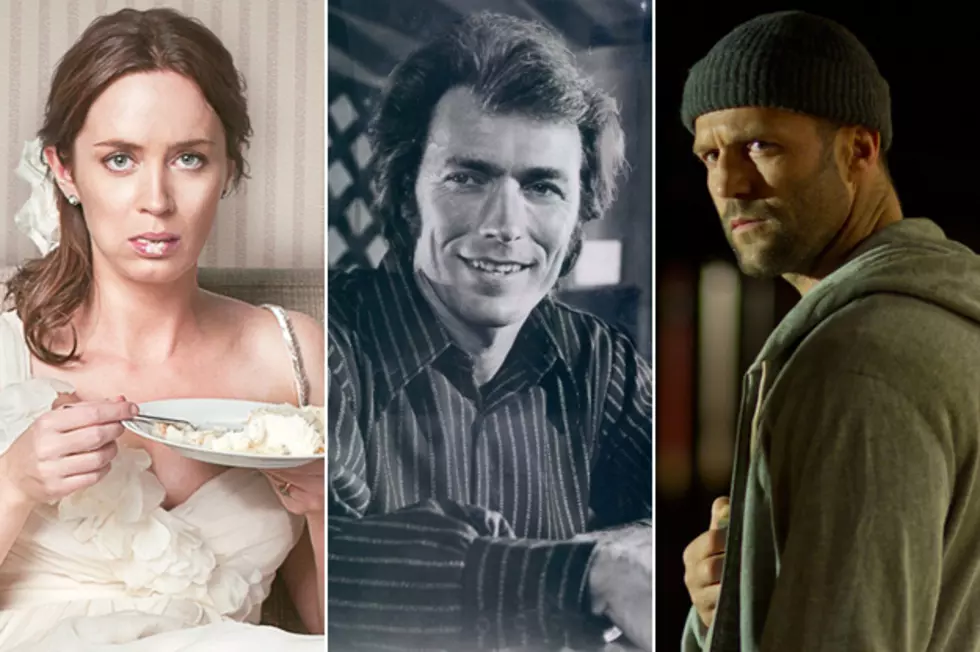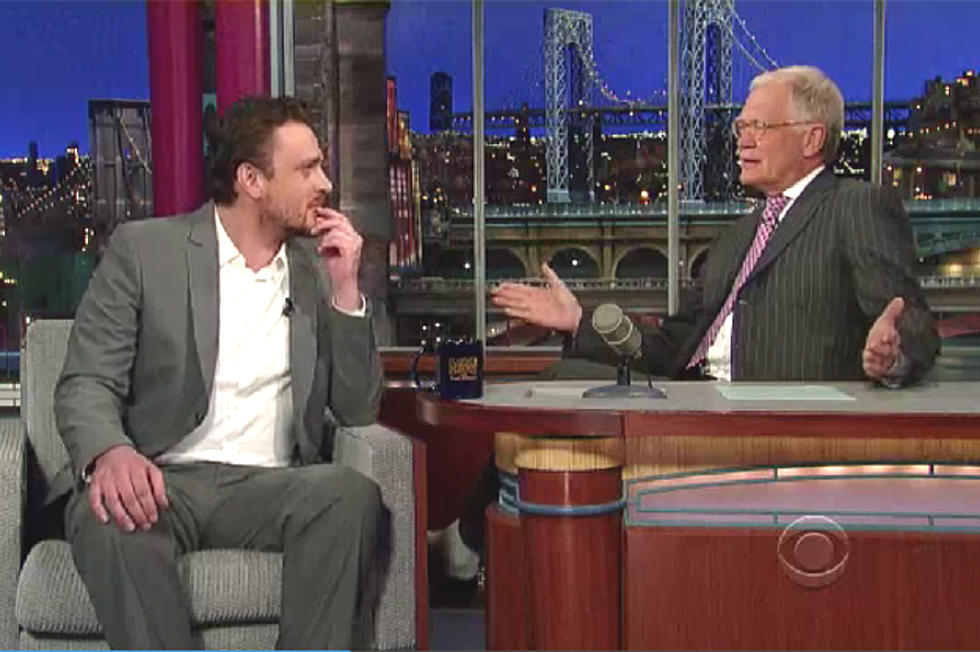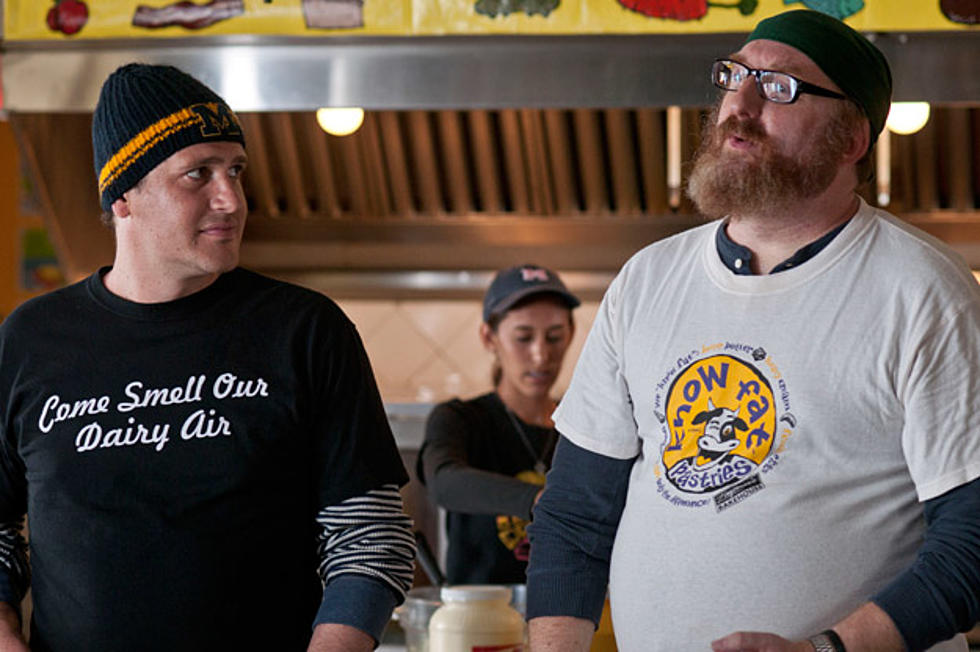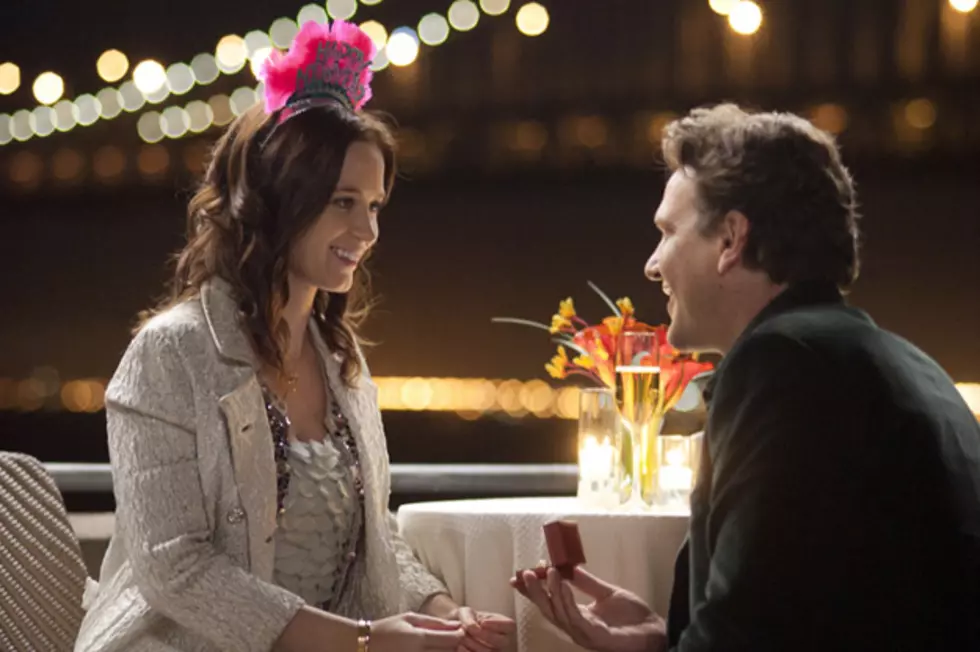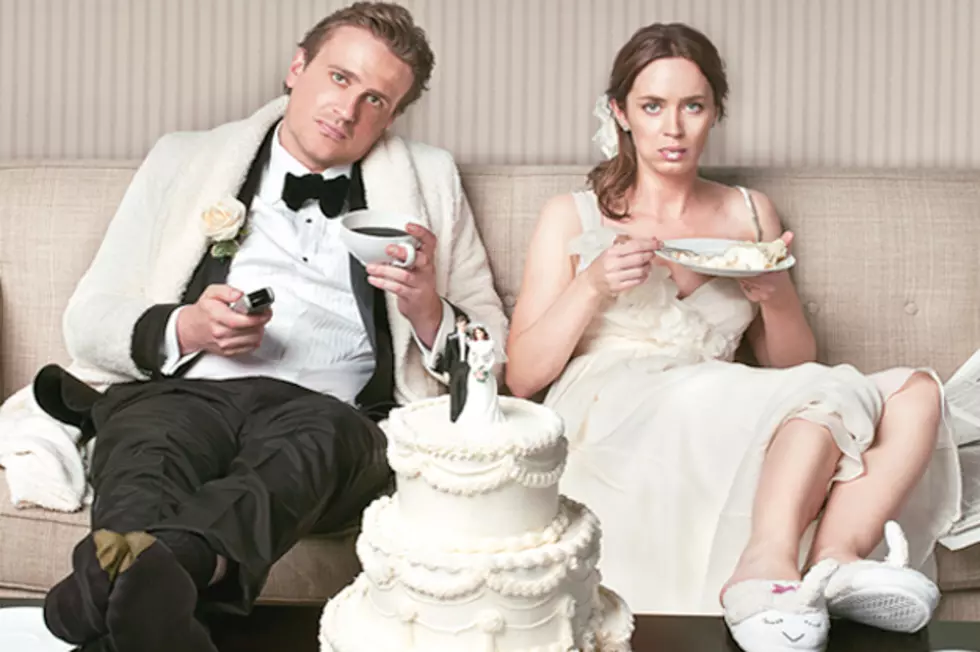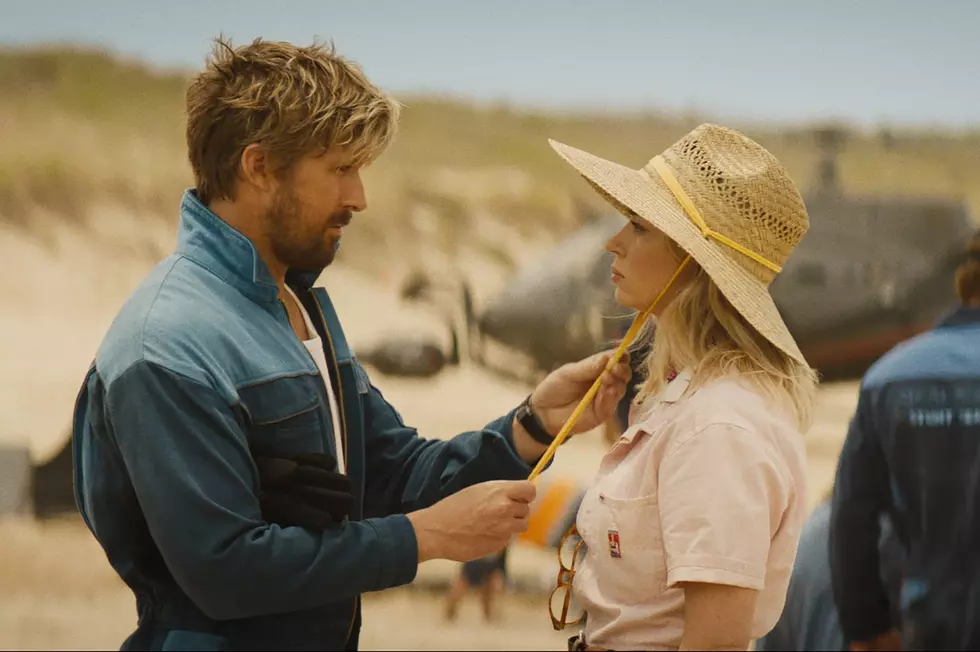
Is ‘The Five-Year Engagement’ a Real Social Experiment?
There’s an amusingly reflexive scene in ‘The Five-Year Engagement,’ in which two social psychologists are watching, through a one-way mirror, a romantic couple dramatically breaking up while sitting in an observation room, unaware they’re not alone. The mirror is like the movie screen, and its framing of the couple becomes the framing of the shot, so the psychologist characters and the audience become entwined, mutually silent voyeurs gazing upon an otherwise private moment.
But there is a difference between us as viewers. The psychologists, within their onscreen world, are looking at a “real” situation, while we are still just looking at made-up characters saying made-up things. I appreciate the film’s attempt at being meta for a minute, though, because I’ve always found the modern American comedy to be akin to a social experiment, one that doesn’t bother with real people and their unpredictable ways.
Consider the situation comedy as being a writer’s exploration of a situation like it were a scientific question, only that question is something like, “what happens if a couple’s wedding keeps getting put off for five years?” or, “what if a maid of honor became extremely jealous of the bride’s new best friend?” or, “what if an adult idiot went back to elementary school?” Many comedic scenarios sound like crazy social experiments, and in a way that’s precisely what they are.
It doesn’t just apply to comedy. One of the social psychologists in ‘The Five-Year Engagement’ is obsessed with conducting an experiment involving people being put to sleep then covered in blood and planted with a gun in hand just to see what happens when they’re suddenly, alarmingly woken up. This sounds like the opening to a number of action thrillers.
But I’ve often felt comedy screenwriters especially develop certain plots and characters as proxies for their own fantasies and, perhaps more often, fears. I’ve written in the past on how it can be a way of venting, being racist and sexist or acting out other extreme and awful behaviors by way of the written character who becomes both an excuse and scapegoat. To make Chris Pratt’s raunchy supporting character in ‘The Five-Year Engagement’ so inappropriate has to be a lot of fun for co-writers Nicholas Stoller and Jason Segel. They get to be that guy without being that guy.
In any case, the point is to see what happens, although the result is manufactured, created and developed, by the writer so of course it’s not actually like a real experiment. The plot points in a comedy occurring after the situation question is raised -- basically anything in the second and third acts -- is more equivalent to a hypothesis than a true result. The writer follows the characters in a presumed chain of effects that would likely happen following the set-up cause. But for humorous purposes many of these presumed reactions are amplified, because exaggeration is funny.
Would it be as funny to us if we were those psychologists in the reflexive scene, who live in that fictional world? Would the situation still be comedic if it was real life? Or would it just be awkward and sad? I’ve thought about the relationship between comedy and reality recently thanks to ‘The Three Stooges’ (actually I think about it all the time), a movie that makes an implication that yesterday’s slapstick comedy stars are equal to today’s reality television stars. Maybe if we’re to believe ‘The Jersey Shore’ is understood by all involved as intentionally a sideshow of freaks and catfights for viewers’ amusement. But in real reality, slapstick is pain not comedy.
As much as gossip and “drama” (that’s life drama, not scripted drama) are major sources of entertainment nowadays, relationship ups and downs aren’t exactly the stuff of comedy in real reality either. Yet I wonder if the situation of ‘The Five-Year Engagement’ would have been more popular as a reality series since it hasn’t done that well as a film comedy. One appealing thing about both reality series and real life is that you have no idea what the result of the situation will be, even if you can make educated guesses. There’s always a thrill in not knowing.
Whereas you know for sure ‘The Five-Year Engagement’ will end with the main characters finally getting married, no matter the probability. People have that expectation and preference when it comes to fiction, especially with the romantic comedy genre. So really the “experiment” is about finding original laughs between the catalyst and the conclusion. I think it’s a very successful exercise in that regard, and I do hope more moviegoers give it a chance. My hypothesis is that a majority of them will like it.
More From ScreenCrush
